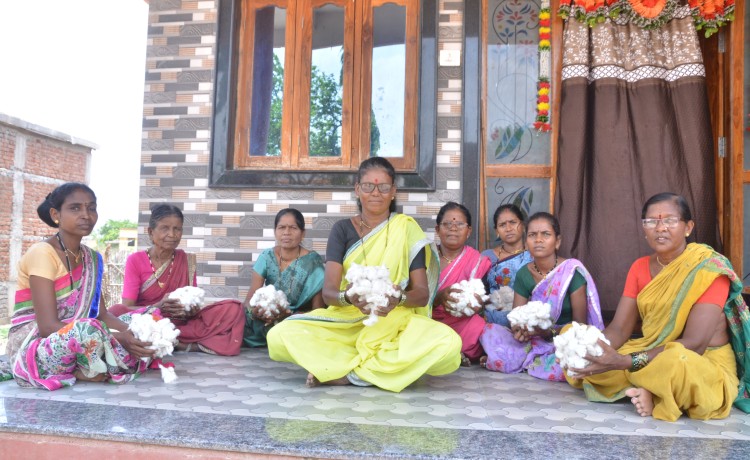In the heart of Chandrapur’s Rajura block lies Devada, a quiet farming village where cotton reigns supreme. With 264 of its 298 households cultivating over 2200 acres, agriculture is more than a livelihood—it’s a way of life. But it was defined by outdated practices, limited tools and little access to credit.
Read more

Karnail Singh, a 79-year-old farmer from Ratyour village, Solan, Himachal Pradesh, proves it’s never too late to learn and prosper!
Read more
Once daily-wage labourers in stone mines and fields, Jashuben and Manubhai lived a life of hard labour and uncertainty. Their farm struggled with low productivity, poor groundwater, and dependence on monsoons.
Read more
When one thinks of Farakka in West Bengal, bordered close to Bangladesh, it’s often seen as a marginalised and backward region. But progressive, forward-thinking farmers like Ismail Sekh are rewriting that narrative.
Read more
As we mark World Earth Day 2025, it’s the perfect moment to spotlight the role of solar energy in transforming rural India—not just environmentally, but socially and economically as well. With climate change looming and traditional resources depleting, clean, alternate and renewable energy isn’t just an ideal—it’s a lifeline. Across villages in India, solar power is reshaping daily life, making communities more resilient, self-reliant, and future-ready.
Read more
Humble pulses - such as lentils, chickpeas, beans, and peas - are often overlooked in conversations about climate. Yet, they hold tremendous potential in shaping a more sustainable agricultural future, especially in countries like India that are grappling with the environmental repercussions of conventional farming practices. In the context of soil depletion, water scarcity, and growing concerns over food security, pulses offer a promising solution to many of the challenges faced by rural India. These crops not only enrich the soil and reduce reliance on chemical fertilizers, but they also support water conservation and provide a critical source of nutrition.
Read more
When you think of ‘terrace farming’ in India, you tend to envision picturesque landscapes characterized by lush green steps carved into hilly terrains – the tea gardens of Assam, rice terraces of Sikkim or vegetable terraces in the Nilgiri Hills of Tamil Nadu come to mind.
Read more
As the world heats up and climate change becomes an ever more stark reality, its impact on rural life is of urgent concern. Weather patterns have changed, rains come at odd times, soaring temperatures dry up water bodies, sudden torrents destroy the produce in fields, groundwater levels decline unabated. Naturally, this impacts everything, including the primary source of livelihood: agriculture.
Read more
“Millets are incredible ancestral crops with high nutritional value. Millets can play an important role and contribute to our collective efforts to empower smallholder farmers, achieve sustainable development, eliminate hunger, adapt to climate change, promote biodiversity, and transform agrifood systems.” - FAO Director-General QU Dongyu
Read more
The lanes and backyards of Lakhamapur Village, Chandrapur, are, literally, teeming with goats. Families here are busy expanding their herds and growing their small, but thriving, backyard businesses – the incessant song of bleating goats rings through the air at every turn...
Read more
In 2023-24, the women of Maa Santoshi Swayam Sahayta Mahila Self Help Group ventured into the farm machinery business - capitalising on the high demand for cotton shredding machines among farmers, to shred left over crop residue like stalks, once cotton has been picked.
Read more
In Abhla, Lakhipur, and other neighbouring villages in Farakka, an unfamiliar fruit brings hope and higher income. A strawberry called Winter Dawn.
Read more

